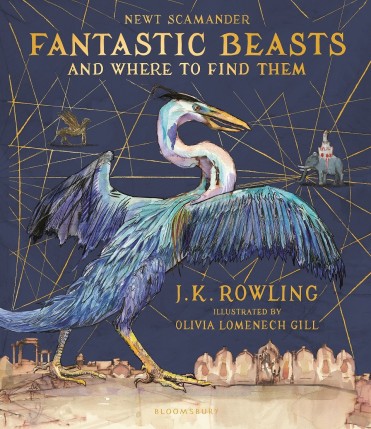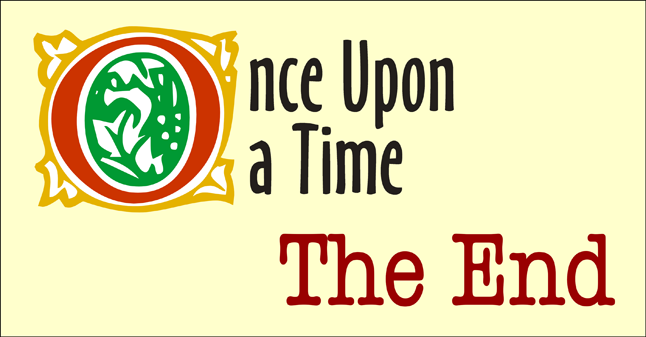Omar: If someone tells you an implausible story that couldn’t have happened and never will, what do you call that? I’ll tell you what you call it. You call it bullshit, because that’s what it is!
If someone gives you the same nonsensical story in the form of a book, what do you call that? You call it fiction. Reading fiction is a complete and utter waste of time.
Riley: Story-telling is as old as humanity and it’s one of the very things that binds us together as humans. Stories are used for many things – bullshit being one, of course, but for education and entertainment too. And loads of people agree with me. When Noel Gallagher famously said reading fiction is “a waste of fucking time,” he faced a huge backlash from the literary community.
Whether it was cavemen sat around a campfire, or someone in 2018 with a novel, reading fiction is most definitely not a waste of time.
Wasting time at a whole new level
Omar: I really can’t think of anything that is more time wasteful than reading fiction books. It’s like the purest form of time-wasting.

When you sleep, it’s beneficial for your body. When you read non-fiction books, you get real-life-applicable knowledge. I mean even video games have been scientifically proven to have some benefits to the brain. What’s the take away from fiction books? Nothing!
Unless you consider knowing some imaginary creature breeds, nonexistent spells, and magical potions somehow useful, nothing is exactly what you get in exchange for your time.
Riley: Well, that’s where you’re wrong. There is so much science-backed evidence to prove that reading fiction is not only good for your emotional well-being, but it’s also good for your brain too.
Reading throughout your life can actually decrease the rate of mental decline by a massive 32% – that’s a significant figure! It can also help strengthen synapses, improve memory, reduce stress, and develop emotional intelligence such as empathy and recognition. It can make your brain work better.
These stats apply whether you are reading non-fiction, classic literature, Fifty Shades of Grey, or your local newspaper. It’s the act of reading that counts, not what you’re reading. Besides, not all fiction is imaginary creatures and nonexistent spells. What about romance, or crime thrillers, or literary fiction, or a whole host of other genres?
Sure, you might get some additional benefits from reading hardcore non-fiction, if that’s what works for you, but there are some benefits of fiction you wouldn’t find in non-fiction, such as the development of emotional intelligence. Besides, some people won’t have the attention span or interest in non-fiction, and so wouldn’t read at all.
Fantastic Beasts and Where NOT to Find Them!
Omar: Fiction books are full of information that is good for nothing. Instead of spending your time reading books that can help make our world a better place, you resort to fiction.
your time reading books that can help make our world a better place, you resort to fiction.
Let me put it this way: If you spend six hours reading JK Rowling’s Fantastic Beasts and Where to Find Them, you will probably enjoy it. At least I did. The level of imagination needed to write such a book is truly respect-worthy. The only problem with those fantastic beasts was that I didn’t find them!
Riley: You got something out of it though, didn’t you? There’s nothing wrong with entertainment. What’s that old proverb? All work and no play makes Jack a dull boy. Even if I agreed you can get no benefits other than pure entertainment from reading fiction (which I don’t agree), we can surely agree that entertainment and escapism have value.
Constant striving for personal betterment or a continual drive to improve the world is all well and good, but eventually you’ll burn out. Everyone needs a little down-time occassionally, and that’s okay. If you can use that down-time learning from stories and enjoying yourself at the same time? Well why the hell not?
Omar: Instead of reading about real-life fantastic creatures which could actually be facing extinction, you waste your time reading about fantastic ones that don’t exist. I’m sure there are plenty of real “fantastic” creatures out there that we don’t know much about.
Of course, no matter how fantastic those real-life creatures get, they will never be as fantastic as the Occamy or the Niffler. But there is an undeniable perk of the not-so-fantastic creatures of our world, which is that you can actually find them. At least for now!
Riley: How about doing both? It doesn’t have to be an either/or question. I read a lot of fiction, but I read a fair amount of non-fiction too. Like everything in life, balance and moderation is key.
Escaping to Fantasies
Omar: There are so many things that are wrong with this world. However, resorting to a fictional world of fairies and dragons is definitely not going to help anyone, yourself included. Reading fiction is a kind of an escape mechanism that if we all resort to, the world is not going to get any better.
For many people, facing the realities of the world is just too hard so they resort to the world of fantasy to enjoy things that don’t/won’t exist in real life. It’s a lot similar to drug use, without the side effects. It’s escapism at best.
Riley: You could easily apply that logic to all different types of fiction though. If reading fiction is a waste of time because it’s not real or because it’s mere escapism, are movies and TV shows a waste of time too?
Omar: But why not read non-fiction? You will have a bigger impact on the world with knowledge and information that you gain from reading good non-fiction books.
You only live once. Every day that passes is gone for good. Making the best use of time is something that sets apart people who leave a mark in the world from those who don’t.
Fiction books can be entertaining, but that’s what it’s all about, entertainment at best.
Riley: Well, I’m sorry Omar, but we’re going to have to agree to disagree once more! Reading fiction can increase your brain power, can teach you emotional intelligence like empathy, and can provide a much needed break in the form of entertainment and escapism. Sure, non-fiction has its benefits, but so does fiction.
Thanks for playing Devil’s Advocate with me Omar 😀


Reading fiction, as you said, has a wide range of benefits. For the general public, fiction can introduce a debate or issue that they might avoid because they see it is boring or they don’t want to talk about it. Look at all the issues tackled by Star Trek, Dragon Age, Mass Effect. They would have engaged more people than academic, non-fiction essays on the same topic.
Excellent point and I agree.
Actually, I think science fiction and fantasy are often the best ways to introduce philosophical ideas and discuss politics and society in an easily accessible and fun way. These genres in particular ask ‘what if…’ and then explore possible consequences to our actions.
I always love your great debates! And thanks for that link. I’m going to hold onto it (may come in handy at some point!). 🙂
Thank you, I’m glad you enjoyed it. I’ve got to say, they are probably one of my favourites to write too. 😀
I read both continually, and I guarantee you nothing will up your Jeopardy score faster than falling in love with a good historical fiction series. Of course, critical thinking is a prerequisite here. You have to know how to separate fact from fiction. If that’s a chore for you, yeah, you might want to stay away from fiction.
If Omar thinks that fiction is about the works of Rowling then he has my deepest sympathy.
Why not suggest that he tries Steinbeck, Hesse, Kafka, Dostoevsky, etc, before he dismisses an entire branch of the arts on the basis of current populist children’s stories.
Thank you for following Sound Bite Fiction, I am pleased that you don’t share his opinion!
I think a bit of him was playing devil’s advocate 😉 but you’ve made some great reading suggestions. I adore Steinbeck… he’s easily in my top 5 authors. Never read any Kafka. Definitely on my list though!